· 12 steps · 12 min read
12 Steps: A Guide to Recovery and Transformation
Discover the transformative power of 12 steps and embark on a journey of self-discovery, healing, and empowerment.
Embrace the transformative power of the 12 steps and embark on a journey of self-discovery and recovery. These time-tested principles have guided countless individuals toward healing, empowerment, and lasting change. From addiction to trauma and beyond, 12 steps offer a path to a more fulfilling and meaningful life.
Overview

PROS
- Provides a structured and comprehensive guide to recovery, outlining the 12 steps and 12 traditions.
- Offers practical insights and wisdom from recovered individuals, making the concepts relatable and applicable.
- Serves as a valuable resource for individuals seeking support, guidance, and community in their recovery journeys.
- Widely recognized and trusted within recovery communities, offering a well-established and time-tested approach.
CONS
- May require a certain level of commitment and willingness to engage with the program effectively.
- The language and concepts may be challenging for individuals with limited exposure to recovery terminology.
'Twelve Steps and Twelve Traditions' is a foundational text in the addiction recovery community, offering a comprehensive and structured guide to the principles and practices that have helped countless individuals overcome addiction. This book presents the 12 steps and 12 traditions, which provide a framework for recovery and personal transformation.
The core principles outlined in 'Twelve Steps and Twelve Traditions' emphasize the importance of honesty, humility, surrender, and service to others. Through personal stories and practical guidance, the book helps readers understand the nature of addiction, its impact on their lives, and the path to recovery. It fosters a sense of community and support, reminding individuals that they are not alone in their journey.
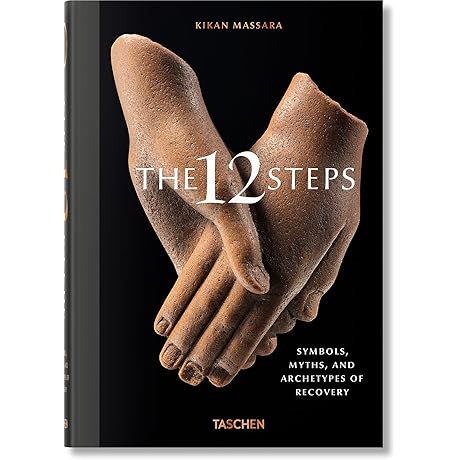
PROS
- Unveils the hidden symbolism, myths, and archetypal patterns embedded in the 12-step program.
- Offers a deeper understanding of the principles and practices of recovery, fostering personal growth and transformation.
CONS
- Can be challenging for readers unfamiliar with Jungian psychology and symbolism.
- May not provide a comprehensive overview of recovery strategies for all individuals.
Embark on a profound journey of recovery with 'The 12 Steps: Symbols, Myths, and Archetypes of Recovery.' This captivating book unveils the hidden symbolism, myths, and archetypal patterns woven into the fabric of the 12-step program. By exploring these profound elements, you'll gain a deeper understanding of the principles and practices that guide recovery, fostering personal growth and transformation.
Through the lens of Jungian psychology, the author illuminates the universal symbols and archetypes that resonate with those seeking recovery. This insightful exploration reveals the power of symbols to connect with our unconscious minds and facilitate healing. 'The 12 Steps' invites you to delve into the transformative potential of the 12-step program, empowering you to embrace a path of self-discovery, healing, and lasting recovery.

PROS
- Offers a compassionate and non-judgemental approach to recovery.
- Provides a step-by-step guide through the 12 steps, making them accessible and practical.
CONS
- May not resonate with everyone due to its focus on Christian principles.
- Some readers may find the language simplistic or outdated.
A Gentle Path through the Twelve Steps is a comprehensive guide to recovery that combines spiritual principles with practical tools. Written by Patrick Carnes, a renowned addiction specialist, this book provides a structured and compassionate approach to navigating the 12 steps of recovery. Carnes' gentle and non-judgmental tone creates a safe space for readers to explore their struggles and find hope.
The book begins by laying out the foundational principles of the 12 steps, including the importance of admitting powerlessness, surrendering to a higher power, and making amends. Carnes then delves into each step in depth, providing exercises, meditations, and personal stories to help readers apply the principles to their own lives. The result is a practical and supportive guide that empowers individuals to take ownership of their recovery journey.

PROS
- Comprehensive guide to the 12 steps of addiction recovery.
- Includes journaling prompts and exercises.
- Suitable for individuals in any fellowship, including Alcoholics Anonymous and Narcotics Anonymous.
CONS
- May require additional support for some individuals.
- May not address all types of addiction.
The 12-Step Workbook offers an immersive and structured journey through the 12 steps of addiction recovery. This comprehensive guide provides clear explanations of each step, begleitet by introspective journaling prompts and thought-provoking exercises. Whether you're seeking recovery from alcohol, drugs, or other addictive behaviors, this workbook has been designed. to provide support and guidance on your path to sobriety.
Through personal anecdotes and practical tools, this workbook empowers readers to explore the underlying causes of their addiction while developing the skills and strategies necessary for lasting recovery. The workbook's inclusive approach allows for flexibility, ensuring that individuals from various fellowships, including Alcoholics Anonymous and Narcotics Anonymous, can find value and support within its pages,

PROS
- Comprehensive guide to the 12-step program specifically tailored for crystal meth addiction.
- Empowering and practical approach that encourages self-reflection and accountability.
CONS
- May require additional support and professional guidance for severe cases.
- Relies solely on the 12-step framework, which may not be suitable for everyone.
The Twelve Steps for Crystal Meth Addicts provides a comprehensive blueprint for individuals seeking recovery from the clutches of crystal meth addiction. Drawing upon the renowned 12-step program, this guide deftly navigates the challenges unique to meth addiction, offering a path toward lasting sobriety.
Through a series of introspective steps, the guide encourages readers to confront their addiction head-on, fostering self-awareness and accountability. It emphasizes the significance of group support and fellowship, creating a supportive environment for healing and growth. By incorporating personal anecdotes and practical exercises, the guide effectively engages readers, inspiring them to embrace recovery and break free from the cycle of addiction.
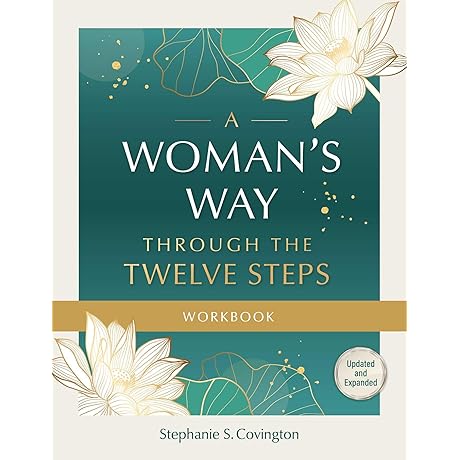
PROS
- Provides a guided approach to navigating the 12-step program tailored specifically for women.
CONS
- May require additional professional support for deeper emotional work.
This comprehensive workbook offers a woman-centric approach to working through the 12-step recovery program. Its nurturing tone and practical exercises create a supportive environment for women seeking to overcome addiction and cultivate personal growth. The workbook empowers women by acknowledging their unique experiences and challenges, offering guidance and insights specifically tailored to their needs.
While the workbook provides a valuable foundation for recovery, it's important to note that it may not be sufficient for addressing complex emotional issues that often accompany addiction. Seeking professional support alongside using this workbook is recommended for a well-rounded recovery journey. Overall, this workbook is an invaluable resource for women seeking to embark on a transformative journey through the 12-step program.
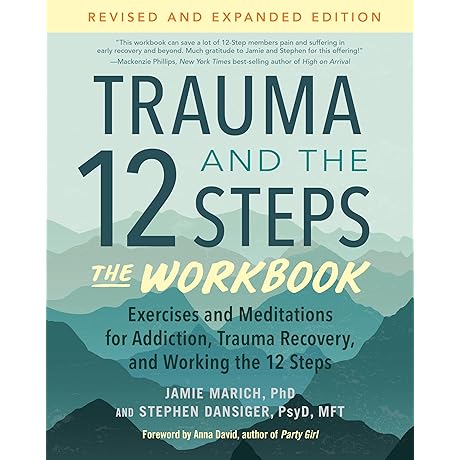
PROS
- Exercises and meditations to supplement the 12-step recovery process.
- Incorporates insights from trauma-informed care, empowering individuals in their recovery journey.
- Comprehensive content addressing both addiction and trauma with real-life scenarios.
- Supports personal growth and healing through self-reflection and guided exercises.
- Revised and expanded edition with updated research and techniques.
CONS
- May require additional professional support for complex cases.
- Relies heavily on self-discipline and motivation.
- Not suitable as a sole resource for addiction or trauma treatment.
Discover a comprehensive guidebook and workbook in 'Trauma and the 12 Steps--The Workbook.' This revised and expanded edition provides a framework for healing and recovery from addiction and trauma. Through a 12-step approach, it incorporates principles of trauma-informed care, guiding individuals through exercises and meditations tailored to their unique needs.
This interactive workbook delves into personal experiences and real-life scenarios, fostering self-reflection and empowering readers to take ownership of their recovery. It complements traditional 12-step work, offering a holistic approach that addresses underlying trauma and its impact on addiction. Join the thousands who have benefited from 'Trauma and the 12 Steps--The Workbook' as they embark on a guided journey of healing, growth, and lasting transformation.

PROS
- Comprehensive guided workbook for the 12 steps of Alcoholics Anonymous.
- Includes dedicated space for journaling and reflection on each step.
CONS
- May require additional support resources for a fully immersive recovery experience.
- The focus on AA fellowships may limit its applicability to those seeking recovery outside the organization.
This AA 12 Step Workbook is an invaluable tool for individuals navigating the transformative journey of addiction recovery within the Alcoholics Anonymous fellowship. Designed to guide you through each of the 12 steps, the workbook provides ample space for personal journaling and deep reflection. The inclusion of dedicated worksheets for the 4th step inventory further enhances its practicality.
As you progress through each step, the workbook encourages self-discovery, accountability, and a gradual shift towards a life free from addiction. The guided prompts facilitate introspection, helping you delve into the underlying causes of your addiction and develop coping mechanisms for lasting sobriety. While the workbook primarily centers on AA principles, it remains a valuable resource for anyone seeking support in their recovery journey.

PROS
- Provides a comprehensive framework for self-reflection and spiritual growth.
- Offers a structured approach to address issues, promote healing, and foster a deeper connection with oneself.
CONS
- May require a high level of self-awareness and commitment to achieve desired outcomes.
- Progress can be gradual, requiring consistent effort and dedication.
12 Steps: A Spiritual Journey (Tools for Recovery) offers an introspective and empowering tool for personal growth and healing. Its step-by-step approach guides individuals through a journey of self-discovery, helping them identify areas for improvement and develop a deeper understanding of their inner selves.
Through a combination of exercises, reflections, and practical tools, '12 Steps' provides a structured framework for addressing personal issues, promoting healing, and nurturing a stronger connection with oneself. It encourages honesty, accountability, and a willingness to embrace change. While the process may require a significant level of self-awareness and commitment, those who embark on this journey have the potential to experience profound transformations and achieve lasting personal growth.

PROS
- Empowers codependents with a roadmap for recovery through the 12 Steps.
- Provides practical tools and insights to navigate the challenges of codependency.
CONS
- Some may find the focus on the 12 Steps too narrow.
- May not address all codependency-related issues.
The "Codependents' Guide to the Twelve Steps" provides a comprehensive guide for individuals seeking recovery from codependency through the widely recognized 12-step program. In this insightful guide, readers embark on a journey of self-discovery and healing, accessing practical tools and strategies to overcome the challenges of codependency. The authors' personal experiences and expertise in the field shine through, offering a genuine and relatable perspective for those navigating the complexities of this condition.
A particular strength of this book lies in its comprehensive approach to codependency recovery. It goes beyond mere symptom management, delving into the underlying emotional, psychological, and spiritual aspects of codependency. The inclusion of real-life stories and exercises enhances the learning process, allowing readers to connect with the material on a personal level. While the focus on the 12 Steps may not resonate with everyone, the valuable insights and principles provided can be applied to a broader range of recovery journeys.
12 steps is a holistic approach to recovery, addressing both the physical, emotional, and spiritual aspects of addiction. Through a series of introspective and transformative steps, individuals can cultivate self-awareness, build stronger connections, and forge a path toward lasting recovery. Guided by experienced sponsors and a supportive community, 12 steps empower individuals to break free from the cycle of addiction and embrace a life of purpose and well-being.
Frequently Asked Questions
What are the 12 steps?
The 12 steps are a set of principles that guide individuals through a journey of recovery from addiction and other life challenges. They provide a structured approach to self-reflection, amends making, and spiritual awakening.
How do the 12 steps work?
The 12 steps work by helping individuals to identify the root causes of their addiction, develop coping mechanisms, and build a strong support network. They encourage individuals to take ownership of their recovery, make amends for past mistakes, and cultivate a sense of purpose and meaning in life.
Who can benefit from the 12 steps?
The 12 steps are designed to benefit anyone who is struggling with addiction or other life challenges. They are particularly effective for individuals who are looking for a holistic and spiritually-based approach to recovery.
How long does it take to complete the 12 steps?
The time it takes to complete the 12 steps varies depending on the individual. Some people may complete the steps in a few months, while others may take several years. The key is to work at a pace that is comfortable and sustainable for each individual.
What are the benefits of completing the 12 steps?
Completing the 12 steps can lead to a number of benefits, including lasting recovery from addiction, improved mental and emotional health, stronger relationships, and a renewed sense of purpose and meaning in life.
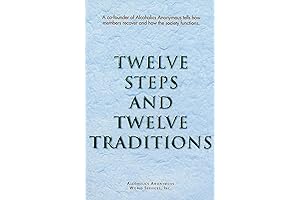

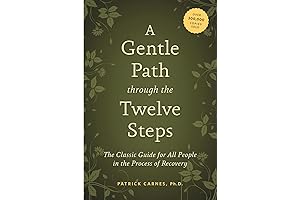




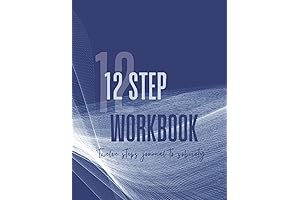
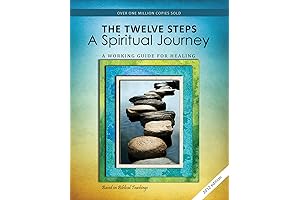

![Top Pinterest Ornament Ideas for [2024]](https://m.media-amazon.com/images/I/61bQS4kitYL.AC_SR500,386.jpg)


